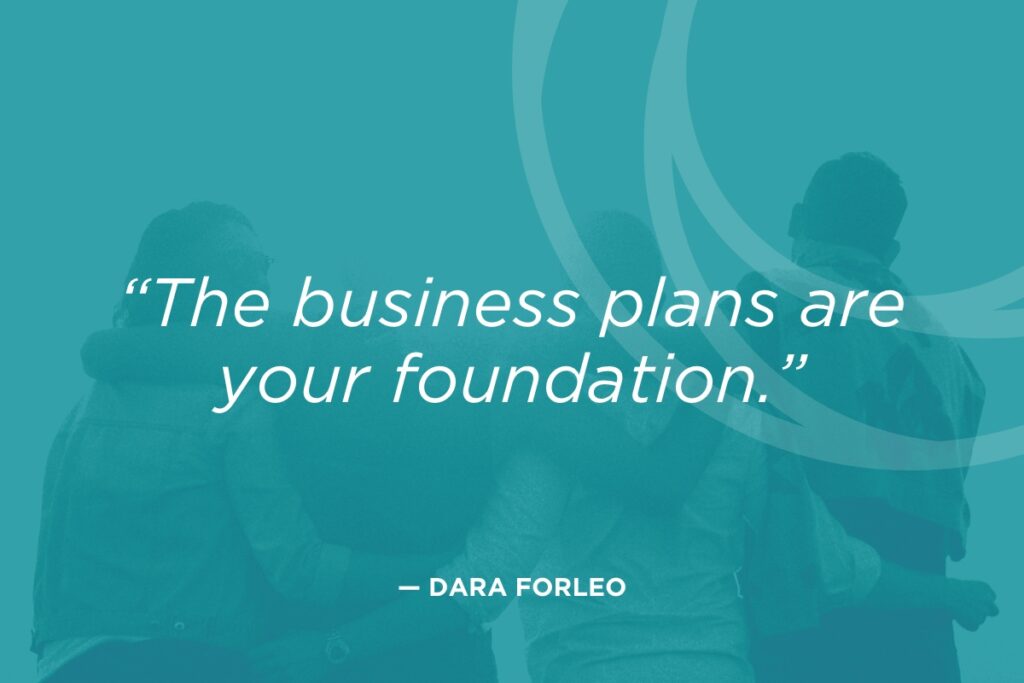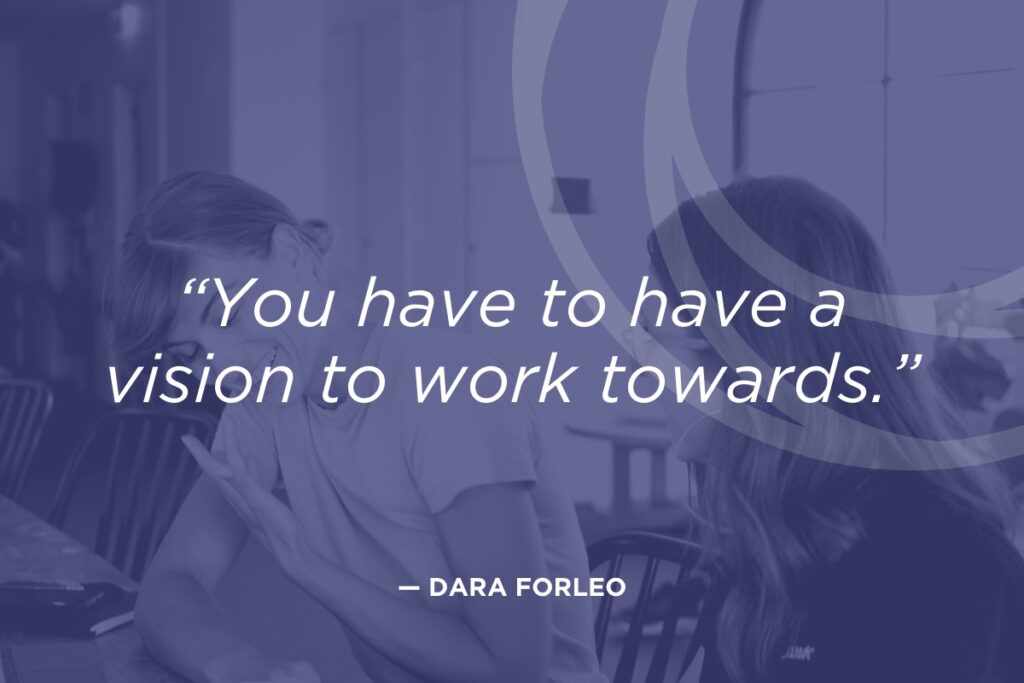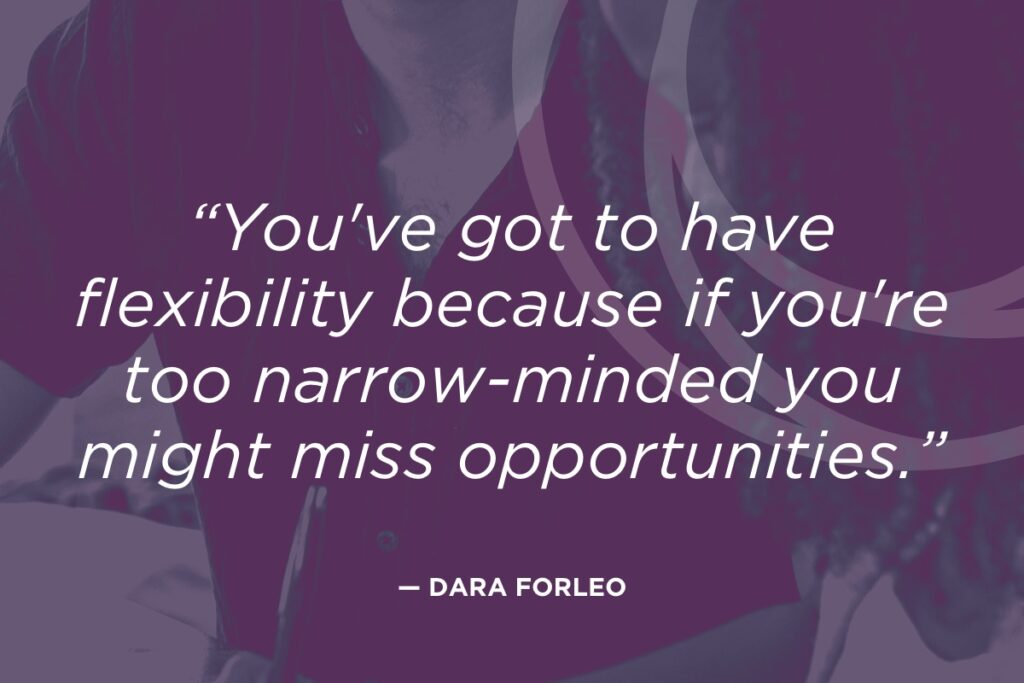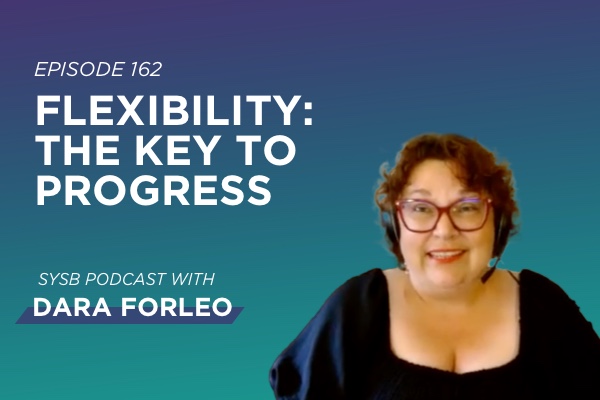This week’s guest has been recognized as Educator of the Year, as an Emerging Business Leader, and is a Pet Age ICON Awards honoree for her experience and long-term contributions to the pet industry. She recently was top in her class in an executive education women’s leadership program at Yale University. Her insights have been featured in multiple publications and she often shares her expertise speaking at conferences nationwide. She’s the founder of Whole Pet Grooming Academy, which is an Arts & Sciences school specializing in providing training for professional pet stylists. She and her husband then created Come What May Racing, a thoroughbred racehorse syndicate operation based in Delaware. Please meet Dara Forleo.
Let’s start off by discussing how important a business plan is for running your small business.
Dara emphasizes that business plans are your foundation. Once you start building on your foundation, you’re going to find that your plan will try to go in other directions. You will be met with little curves and hiccups, so you’ll need a secondary way of doing things or another thought of “How am I going to work around this?” She stresses how important flexibility is. She keeps journals and notebooks for the businesses that she runs to keep track of things. Plans can change daily based on what’s happening in the moment. You have a vision to work towards, but you’ve got to have flexibility too because if you’re too narrow-minded about things you might miss opportunities.
One of the greatest things about entrepreneurship, but also one of the most annoying things about entrepreneurship, is that if you are not flexible you’re not going to progress. Whether that means being flexible with your business plan or with any other aspect of your business, that flexibility is huge.
Journals are great because you’re able to look back at the things you were facing in the beginning of your business versus now. You may look back and think, “Oh, I haven’t done anything. I haven’t made progress. What am I doing?” Those journals allow you to go back and look and see the progress you made or how you handled big hurdles that you may need to handle again in the future.
Are there any processes that Dara recommends putting in place or documentation to help your business run smoother and create that flexibility inside your business?
Running a school means having many students with syllabuses that need to be followed for each of their classes. Therefore, Dara has put a lot of processes and procedures in place. She’s very stringent with their policies, procedures, and daily planning in order for her business to run smoother.
She’s been in business for 30 years and knows the value of having those policies and procedures so that way people aren’t just running amok and going every which direction. She made the mistake of not having them in place in the past and the business was running in every which direction. It was absolute chaos. Seeing that drama and turmoil it created in everyone and in herself myself was awful, but she learned. You learn as you’re growing she shared. She still takes classes online, does business courses, and works with coaches in order to keep advancing herself in the business.
One of the best things that happened in her business as it grew, was having a general manager who was able to implement and execute everything that’s been set up. This allowed Dara to finally not be in the business, but rather work on it instead. She’s been working on it for the last year and a half, and has doubled in size!
Dara suggests that there are 3 boundaries that business owners should put in place when running a business.
- You’re not friends with your employees. It’s not going out to dinner. It’s not doing social events. It’s not inviting them to your house. You can have good relationships with them, but you can’t be friends with them. Everything is separated and kept at arm’s length.
- You don’t need to know their social world. When business is done and they clock out they’re done. Don’t reach out unless it’s a student problem. Their time away from the business and off the clock is theirs.
- Social media is the third boundary. She doesn’t allow people who she’s not daily with on her personal page. She has a professional presence on LinkedIn for her business communications. You’ve got to have your own personal boundaries with your business and not accept calls after a certain time and not return emails after a certain time.
Dara loves setting goals. She has daily goals, weekly goals, and monthly goals. She also has a one-month, three-month, six-month, nine-month, and 12-month plan. Finally, she also has a three-year and five-year plan. She writes these plans in her journals and this helps her structure the day. It gives her a routine and allows her to get more stuff done.
You’re going to make mistakes in your business, Dara recommends that you budget for somebody to help you like a mentor or a business coach.
Best place to reach Dara:
- Email: [email protected]
- Business cell phone: 603-732-7796
Show Notes





